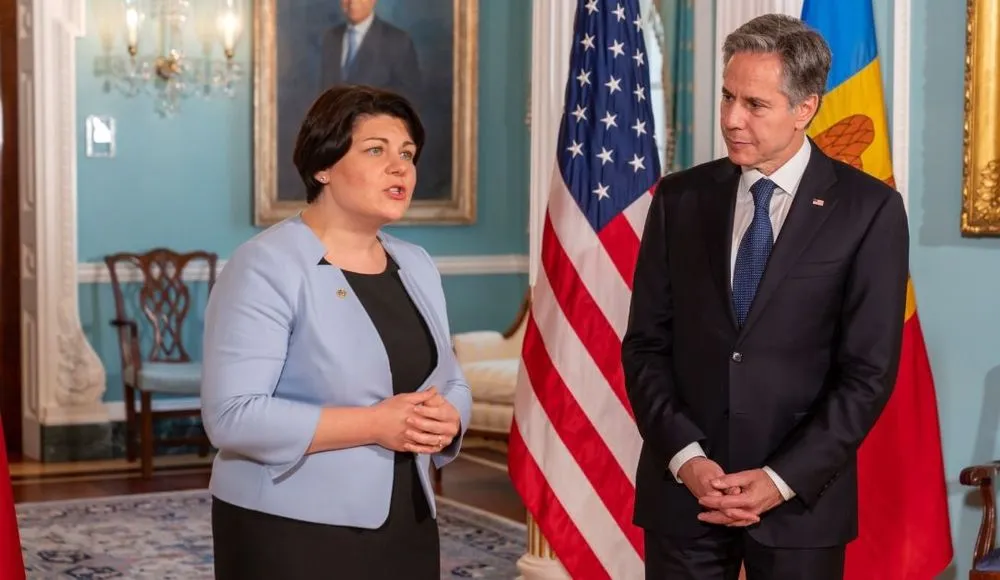Russia's cyberattacks aimed at ‘destabilizing’ Moldova, PM says
Updated at 8:30 a.m. EST on February 10 with news of the prime minister's resignation.
Russia is waging a hybrid war not only in Ukraine but also throughout Europe, and Ukraine’s neighbors and closest allies are bearing the brunt of it.
That is especially true in Moldova. In an interview with Euronews on Tuesday, Moldovan Prime Minister Natalia Gavrilița accused Russia of trying to destabilize the country by sponsoring protests and carrying out cyberattacks. (On Thursday, Gavrilița announced her resignation after 18 months in power.)
According to her, last year Moldova suffered from the biggest cyberattacks in its history.
The country has also been on the receiving end of frequent bomb threats, Gavrilița said. In July, Moldovan officials received fake emails, many of which were sent from Russian and Belarusian IP addresses, warning of bomb threats at more than 50 facilities across the country, including the airport, the capital’s City Council, the Parliament, and various ministries.
As of September, Moldovan security agencies recorded 148 bomb alerts against 885 state institutions in 2022.
Over the past year, Moldova has also witnessed a sharp increase in cyberattacks. Due to its alliance with Ukraine, the country has become an attractive target for pro-Russian hackers.
In August, the pro-Russian hacker group Killnet announced a week-long hacking campaign against Moldova. In October, hackers targeted 80 Moldovan state computer systems with distributed denial-of-service (DDoS) attacks.
In November, a newly-registered website called Moldova Leaks released private Telegram conversations purportedly involving prominent Moldovan political figures, sparking a political scandal.
The Moldovan president’s office claimed the content of the conversations was fake, but the leak indicates the probable interference of Russian hackers and intelligence services in the country’s internal politics.
In January, Moldova’s government institutions were hit by a wave of phishing attacks — hackers sent more than 1,330 emails to accounts belonging to the country’s state services.
Its internet connection is also suffering from the war in Ukraine. In November, Russian missile strikes on Ukraine caused internet disruptions in Moldova, as it is connected to Ukraine’s power grid.
Gavrilița said that Russia’s invasion put Moldova's economy, energy security, and social stability under great strain.
“A lot of the situation in Moldova will depend on the evolution of the war in Ukraine,” she said.
Daryna Antoniuk
is a reporter for Recorded Future News based in Ukraine. She writes about cybersecurity startups, cyberattacks in Eastern Europe and the state of the cyberwar between Ukraine and Russia. She previously was a tech reporter for Forbes Ukraine. Her work has also been published at Sifted, The Kyiv Independent and The Kyiv Post.



